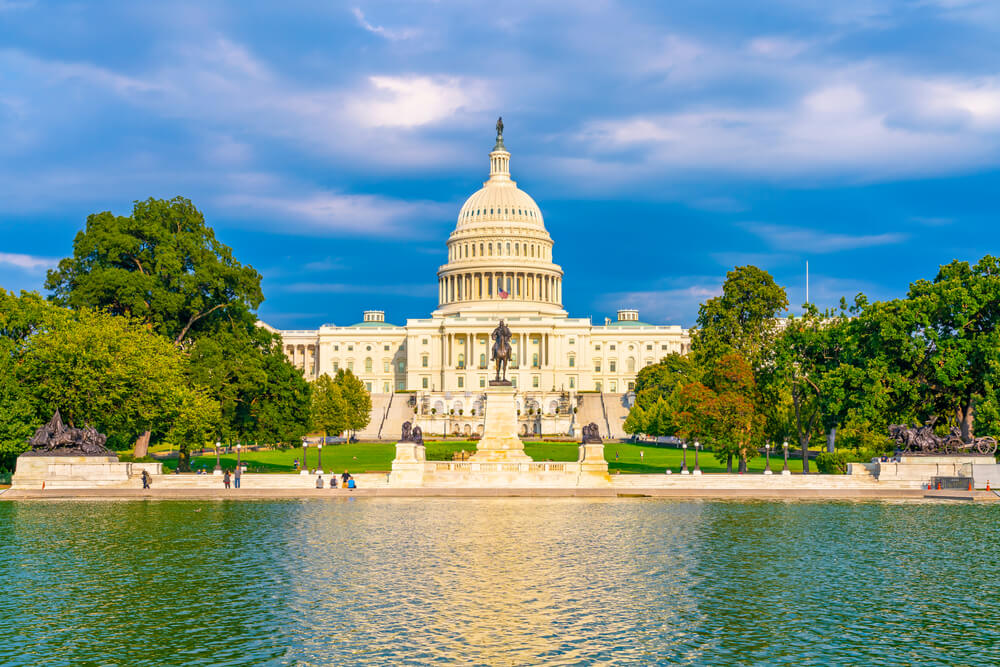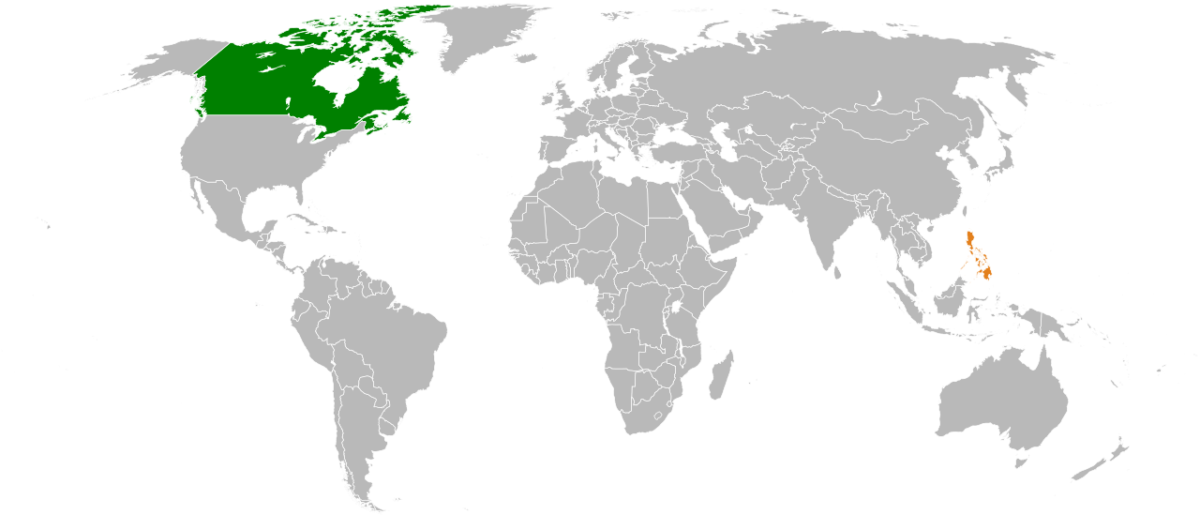NDAA Blues, But HOPE On The Horizon

 by Morgan Fox, NCIA’s Director of Media Relations
by Morgan Fox, NCIA’s Director of Media Relations
The last week or so has been an interesting one in Congress when it comes to cannabis policy reform, and carried with it the usual mix of positive and unfortunate developments.
First, in yet another installment in the long and ongoing saga that is the SAFE Banking Act’s path toward becoming law, a minor setback. Champion and lead sponsor Rep. Ed Permutter had been working for weeks to get SAFE Banking language included in the NDAA, or National Defense Authorization Act. This spending package is typically focused on security and military matters, and is considered “must-pass” legislation by both chambers. Now, you may be asking what allowing banks to more easily work with legal cannabis businesses has to do with national security, and the answer – oddly enough – is a lot. Beyond the obvious public safety benefits of no longer forcing most cannabis businesses to operate entirely in cash and making them targets for crime, allowing access to banking would dramatically increase financial transparency in the industry. This would give law enforcement additional tools to help prevent the admittedly rare occurrences of criminals extorting legal businesses or using them to launder money, which is certainly a security concern. Perhaps even more relevant, being able to use the financial services that are available to other legal industries would help remove significant barriers to entry into the legal market and allow small cannabis businesses to be more competitive with unregulated operators, some of whom have ties to international drug trafficking organizations that present an ongoing threat to global security.
Unfortunately, Rep. Perlmutter decided not to add the banking language to the NDAA at the urging of Speaker Pelosi in order to ensure the spending package would pass without issue. Despite this compromise, however, Rep. Perlmutter has vowed to attempt to add it to every available legislative vehicle going forward. Given the fact that the Senate is currently stalling on the SAFE Banking Act as a standalone bill, this may be the most viable strategy of getting cannabis banking reform through both chambers before the end of the current Congress.
Speaking of other vehicles for reform, the ongoing appropriations process continues to hold hope for passing a number of cannabis-related items in the near future. Lawmakers recently approved a continuing resolution to fund the government through February and avoid a shutdown. This means that there will be no changes to the previous budget until then, but it does give us more garner support for the provisions that we want to make sure are part of that spending package. That includes preventing the Department of Justice from targeting state-legal adult-use cannabis businesses and programs, SAFE Banking, improving access for veterans, expanding research, and more.
In better news, Reps. David Joyce (R-OH) and Alexandria Ocasio-Cortez (D-NY) partnered up to introduce a bill that would provide federal support for state-level expungement efforts. The Harnessing Opportunities by Pursuing Expungement (HOPE) Act would allocate $20million for a grant program to help reimburse states for the costs associated with expunging non-violent cannabis convictions. This is incredibly important because most of the federal expungement conversation has focused around federal convictions, yet the vast majority of arrests and convictions occur under state laws. Most states lack the resources and infrastructure to effectively address this issue at a large enough scale and in a manner that is affordable to the victims of prohibition who are just trying to clear their records of convictions for behavior that is now legal for a majority of Americans. It is wonderful to see bipartisan support for this important legislation, and we look forward to working with lawmakers to push it through as soon as possible.
That’s all for now, but stay tuned for further updates from Capitol Hill. And don’t forget to register for NCIA’s Cannabis Business Summit in San Francisco next week!
Canada Legalizes Cannabis – When Will The U.S. Follow?

by Rachelle Lynn Gordon, NCIA Editorial Staff
 On June 19, Canada became the first G7 nation and second in the world after Uruguay to fully legalize cannabis for adult use, paving the way for what is estimated to be a CAD$9.2 billion dollar industry by 2025. Canadian Prime Minister Justin Trudeau Tweeted in response to the move:
On June 19, Canada became the first G7 nation and second in the world after Uruguay to fully legalize cannabis for adult use, paving the way for what is estimated to be a CAD$9.2 billion dollar industry by 2025. Canadian Prime Minister Justin Trudeau Tweeted in response to the move:
“It’s been too easy for our kids to get marijuana – and for criminals to reap the profits. Today, we change that. Our plan to legalize & regulate marijuana just passed the Senate. #PromiseKept”
The passing of the iconic Bill C-45, also known as the Cannabis Act, was met with raucous applause from the across the globe and sent marijuana stocks soaring. Provinces and territories now have until October 17 to develop and implement their own regulations for the sale of cannabis products; according to the federal statute, adults will be able to carry and share up to 30 grams of marijuana in public and cultivate up to four plants at home.
But when will the United States follow suit and become a part of the multi-billion dollar global cannabis market?
High Time for Federal Legalization
“With leading policymakers on both sides of the aisle calling for reform, there has never been more momentum behind the effort to replace criminal marijuana markets with regulated businesses, but we still have a long way to go.” says Aaron Smith, executive director for the National Cannabis Industry Association (NCIA).
Despite the fact that 29 states, as well as Guam, Puerto Rico, and the District of Columbia, have legalized cannabis for medical and/or adult-use, the plant is still illegal at the federal level. This has led to immense headaches for business owners within the legal space who only wish for their companies to thrive but are hindered by lack of access to traditional banking and fundraising opportunities and stuck operating within individual state lines.
Lawmakers from legal states have heard their constituents’ voices loud and clear and have joined together to develop the STATES Act, short for “Strengthening the Tenth Amendment Through Entrusting States.” Introduced by Senators Elizabeth Warren (D-MA) and Corey Gardner (R-CO), the bill aims to protect states that choose to legalize cannabis by creating an exemption to the U.S. Controlled Substances Act, and would remove industrial hemp from the Controlled Substances Act entirely. The bill would also allow banks to work with cannabis businesses more easily. Representatives David Joyce (R-OH) and Earl Blumenauer (D-OR) have already introduced a companion bill in the House.
When asked about the STATES Act by reporters, President Trump replied that he would more than likely support the measure, stating: “I support Sen. Gardner, I know exactly what he’s doing. We’re looking at it. But I probably will end up supporting that, yes.”
Full Legalization Needed for Market to Thrive
Adopting a federalist approach on the issue of cannabis law reform will certainly mean that individual states will be allowed to flourish, but it stops short of the immense financial opportunities that federal legalization could bring.
“The cannabis industry is vibrant and expanding rapidly, but until the threat of federal interference is removed, our economic potential is limited,” said Aaron Smith, NCIA. “Lack of access to financial services, exorbitant tax pressures, and the absence of interstate and international commerce are all problems that we can fix by turning up the pressure on Congress.”
U.S.-based companies and investors are missing out on huge financial investment opportunities due to cannabis’ current status as a Schedule I controlled substance. According to a recent white paper released by NCIA’s Policy Council, as of February 2018, 39 of the 89 federally-licensed producers (LPs) of cannabis in Canada were publicly traded, raising a total of $1.2 billion CAD in January 2018 alone. On June 20th, it was announced that Tilray would be joining Cronos Group as the second Canadian LP listed on the U.S.-based NASDAQ; behemoth Canopy Growth is listed on the NYSE.
In late 2017, Canopy announced the sale of nearly 10 percent of its stock to U.S.-based alcohol giant Constellation Brands (known for Corona and SVEDKA vodka) for a cool $191 million dollars. Now that cannabis is legal in Canada, there are certain to be even bigger deals fastly approaching that U.S. operators are missing out on.
Impressive Advancements are Being Made – Just Not in America
The United States is also being left behind in terms of research and development and intellectual property within the cannabis space. In countries such as Israel, where the federal government appropriates money to researching marijuana, rapid advancements are being made that could be groundbreaking – and have global effects. In 2017, there were more than 110 clinical trials involving cannabis in Israel – far more than any other developed nation. It was also recently revealed that China now holds around half of the IP related to hemp in the world. This puts Americans at a disadvantage as the rest of the world competes to create innovative and life-altering cannabis medicines and technology.
“R&D requires access to capital and federal and academic support,” explains Frank Lane, President of Cannabis Financial Network. “These remain elusive in the U.S. because cannabis remains federally illegal. The U.S. is slowly allowing more University backed cannabis research but at a much slower pace then Israel, Canada and have allowed research on a federal level for years. The U.S. will be playing catch up as medical cannabis continue to be adopted globally.
Exports Expected to Rule Canadian Market
While legal domestic sales won’t begin for several months, some Canadian LPs have already been exporting cannabis products to several countries that have approved the plant for medical purposes. It was announced last October that Cronos Group had reached a deal to put their products in over 12,000 pharmacies across Germany, where the government is choosing to use their own socialised healthcare systems to handle the distribution of cannabis product to patients. Obtaining these lucrative government contracts means big money for exporters, and unfortunately for entrepreneurs from the U.S. looking to cash in may be too late by the time legalization occurs.
“Many European and Latin American countries are approving cannabis for medical use,” Lane adds. “These are billion dollar markets that countries like Canada and Uruguay are seizing because they have federally legalized cannabis and become adept at developing pharmaceutical grade products.”
U.S. Canna-Businesses Must Double Down on Reform Efforts
Until the federal government ceases to consider cannabis a Schedule I narcotic, American businesses will continue to lag behind and miss out on multi-billion dollar opportunities. Therefore, it is more important than ever that the industry continue to communicate with policymakers in order to create impactful change – before it’s too late.
Attending events such as the NCIA Quarterly Cannabis Caucus series is a perfect way to engage with local politicians and fellow entrepreneurs while also staying up to date on the latest legalization developments.
Read more about how the U.S. is falling behind in the global cannabis market in this report produced by NCIA’s Policy Council.

 by Morgan Fox, NCIA’s Director of Media Relations
by Morgan Fox, NCIA’s Director of Media Relations

 On June 19, Canada
On June 19, Canada